“I don’t know why.”
Jane leaned forward. “Because you don’t normally believe in hunches. You’re always going on about that pesky thing called evidence. The last time you had a hunch, I didn’t believe you, but you turned out to be right. You saw the connection that no one else saw, including me. So this time, Maura, I’m going to listen to you.”
“I’m not sure you should.”
“Don’t tell me you’re doubting yourself now.”
Maura stacked the pages. “We need to find something that these victims had in common. Something that brought them both into contact with this killer.” She placed Timothy McDougal’s crime-scene photos in a folder and was about to close the cover when she paused, staring at the image. A memory suddenly rippled to the surface, a memory of sunlight glowing through jeweled panes of glass.
“What?” said Jane.
Maura didn’t answer. She pulled out a photo of Cassandra Coyle’s corpse and placed it beside Timothy McDougal’s crime-scene photo. Two different victims, one a man, the other a woman. The man skewered with multiple arrows, the woman with her eyes removed. “I can’t believe I didn’t see it,” she said.
“Want to tell me what you’re thinking?” said Jane.
“Not yet. Not till I’ve done some more research.” Maura whisked the photos into her folder and headed for the door. “I need to consult someone.”
“Who?”
Maura paused in the doorway. “I’d rather not tell you,” she said, and walked out of the room.
Neutral ground. That was the agreement, someplace public, where they’d both be obliged to behave as professionals. Certainly they could not meet in her house, where they had met so many times before, and where temptation would whisper from the bedroom. Nor could they meet at Our Lady of Divine Light, where church staff or parishioners might see them together again and wonder. No, this café on Huntington Avenue was far safer territory, and at 3:00 P.M., it was quiet enough for them to linger unnoticed and undisturbed.
She was the first to arrive, and she chose a booth at the rear of the café. She sat with her back to the wall, like a gunslinger waiting for the enemy to arrive, but the true enemy wasn’t Daniel; it was her own heart. She ordered coffee. Even before her first caffeinated sip, her pulse was racing. She tried to distract herself by pulling out the case files and reviewing the crime-scene photos. How twisted was this, that scenes of violence and death were what calmed her? The dead were always good company. They made no demands, expected no favors.
Aroused no desires.
She heard the door open and her gaze snapped up as he stepped into the café. Bundled as he was in a winter coat and a scarf, he might be just another patron escaping the chill to warm up with coffee, but Daniel Brophy was not just any man. The waitress paused in the middle of laying out silverware to stare as he walked past, and no wonder. With his dark hair and long black coat, he looked like a somber Heathcliff striding in from the moors. Daniel did not notice the waitress’s lingering look; he had spotted Maura, and his gaze was only on her as he walked straight to her booth.
“It’s been too long,” he said quietly.
“It wasn’t so long ago. April, I think.” In truth, she remembered the exact date, the time, and the circumstances when they’d last seen each other. So did he.
“Roxbury Crossing,” he said. “The night that retired cop was killed.”
Crime scenes were now the only places where they encountered each other. While she attended to the dead, Father Daniel Brophy’s role as Boston PD chaplain was to administer to the living, the grief-stricken and the traumatized who were so often left in the wake of violent crime. They had their separate duties and no reason to speak to each other at death scenes, but she was always aware of him. Even when they exchanged not a glance, she knew whenever he was nearby and could feel the disturbance in her well-ordered universe.
Now that universe seemed to tilt around her.
He shrugged off his coat and unwound his scarf, exposing the priest’s collar around his neck. That unforgiving band of white was merely starched fabric, but it had the power to keep apart two people who loved each other.
She avoided looking at the collar as she said, “Did you resign as police chaplain? I haven’t seen you at any crime scenes.”
“I’ve been in Canada for the last six months. I got back to town only a few weeks ago.”
“Canada? Why?”
“For a spiritual retreat. I requested it. I needed to get away from Boston for a while.”
She didn’t ask the reason why he needed time away. She could see the deeper worry lines in his face, the new strands of silver in his dark hair. It wasn’t Boston he had fled from; it was her.
“I was surprised when you called me today,” he said. “The last time we spoke, you asked me never to contact you again. It hasn’t been easy, but I want only what’s best for you, Maura. That’s all I’ve ever wanted.”
“Daniel, this isn’t about us. It’s about—”
“Can I get you something, sir?”
They both looked up to see the waitress standing at their table, her pen and pad in hand.
“Just coffee, please,” said Daniel.
They were silent as the waitress filled his cup and warmed Maura’s. Did the woman wonder about this odd couple sitting so glum and silent in the booth? Did she assume it was merely a counseling session, that Maura was seeking comfort from her priest? Or did she see more, understand more?
Only after the waitress had left did Maura say to Daniel, “I called you because something’s come up in an investigation. I need your opinion.”
“About?”
“Could you look at this? Tell me what immediately comes to mind.” She slid a crime-scene photo across the table to him.
He frowned at the image. “Why are you showing this to me?”
“The victim’s name is Timothy McDougal. He was found on a pier at Jeffries Point on Christmas Eve. So far the police have no leads and no suspects.”
“I’m not sure how I can help you.”
“Just keep that image in mind. Now look at this one.” She slid him the photo of Cassandra Coyle’s corpse. It was a close-up of her face, with two gaping holes where the eyes had once been. As he stared, she said nothing, waiting to see if he would be jarred by the same revelation. When at last he glanced up at her, there was astonishment in his eyes. “Saint Lucy.”
She nodded. “That’s exactly who I thought of.”
“You never attend church, yet you recognize this symbolism?”
“My parents were Catholic, and...” She hesitated, reluctant to confess her secret. “You don’t know this, but I used to sit in your church, just to meditate. Sometimes I was the only one there. The last pew on the left, that’s where I’d always sit.”
“Why? When you don’t even believe?”
“I wanted to feel close to you. Even when you weren’t there.”
He reached across the table to touch her hand. “Maura.”
“Next to the pew where I sat, along the left wall, there are these beautiful stained-glass windows with portraits of the saints. I used to stare at those windows, thinking about their lives. About the agonies they suffered as martyrs. Strangely enough, I found that comforting, because their pain made me count my blessings. I remember one window in particular. It shows a man with his arms bound to a post, and he’s looking up toward heaven. A man who’s been shot with arrows.”
He nodded. “Sebastian, patron saint of archers and policemen. One of the most recognizable martyrs in medieval art. He was a Roman officer who converted to Christianity, and when he refused to honor the old gods, he was tied to a post and executed.” He tapped on the photo of Timothy McDougal. “You think this is a re-creation of Sebastian’s martyrdom?”
Читать дальше
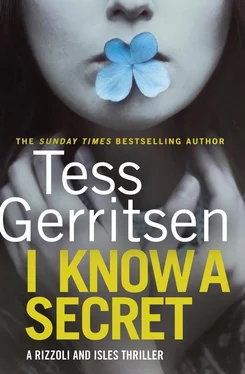
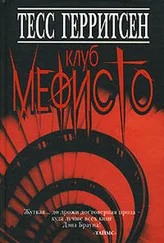
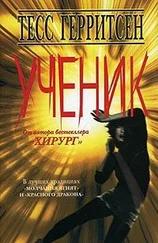
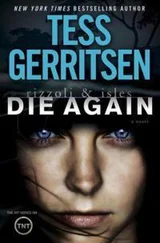
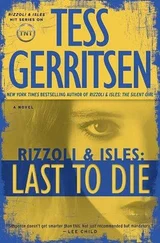
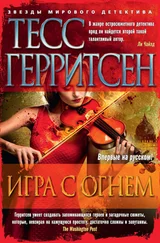
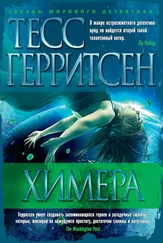
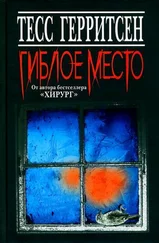
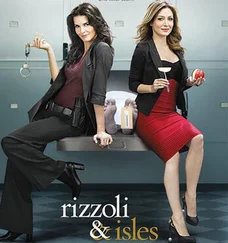
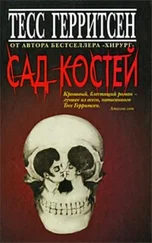
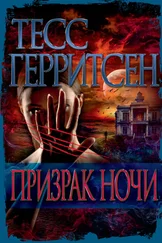
![Тесс Герритсен - Считать виновной [litres]](/books/395939/tess-gerritsen-schitat-vinovnoj-litres-thumb.webp)
![Тесс Герритсен - Двойник [litres]](/books/427680/tess-gerritsen-dvojnik-litres-thumb.webp)